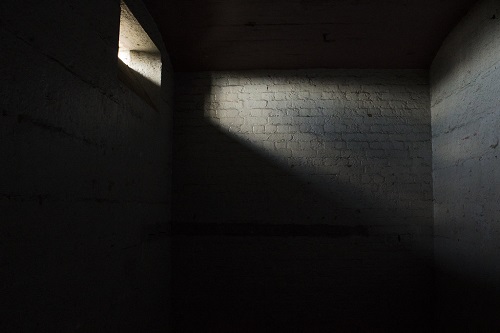J Miller photo
By
Sunil Sharma
Writing subversion on the toilet paper
Walls cannot imprison the mind. Tyrants tried but could never box in—soaring minds, un-fettered by such physicality of solidity of bricks, mortars, barbed wires and guards, armed and itching to shoot the garbage that walks or tries to flee the grim system of any Gulag.
Still, the dictators and democrats try!
Gramsci transcended the walls, successfully.
Dungeons and ghettos are known as the custodians of human bodies.
…There are many Robben Islands scattered around the world and 8×7-foot cells but gritty folks survive the killer monotony—for their beliefs.
Keeping sanity in most dismal, brutal of gloomy places, denied the sun and wind;
The invincible spirit flies the man-made hell.
Acts of great courage! Of morality.
Some guys never bend!
A political prisoner writes on the toilet paper issued by the prison authorities in Kenya.
The year is 1977.
The venue of this unlikely activity—Kamiti Maximum Security Prison.
The language: Gikuyu.
The text is called Caitaani mutharaba-Ini (Devil on the Cross).
The man goes by the name Ngugi. He once wrote in English and won plaudits for the command over a colonial legacy, perpetuated as an instrument of dominance and separation, in a post-colonial country, most willingly by its governing elites.
Then, realizing the covert aim of such a policy, the writer switched over to a new name, language and identity; a new voice spoken by his own people—and saw and wrote things for which he was sent to a notorious prison and then, exile but Ngugi never relented as a public figure and continued to challenge the hegemony of an empire that was once there but no longer there, as a cruel state out to exploit the natives, under the guise of culture and civilizational project of the pious whites.
We got fresh insights into the workings of the colonizing powers—old or neo and their seductive ideologies through writers like Ngugi and others.
Sadly, slowly, his shrinking tribe vanished in the global literary markets, hungry for dystopia, vampires, ghosts and werewolves, and, other fantasies.
Should not writers repeat the same gesture of demolition, political and urgent, in this post-truth, post-fact age?
Resistance, not incorporation, by their chosen words, narratives and actions?
Dear Ngugi, why there is such a dearth of your successors?
Status quo—that becomes the official truth in the absence of searing words;
words that singe and burn up the moribund systems
and tend to herald a
new lexicon of political practice and vision of a new society, more equal and humane than the one preceding.
The New Millennium waits for brave dissidents like you
to give moral directions to an age going high-tech consumerist
and show the right road map for suffering humanity mired in the cesspool of a globalised economy.
Sunil Sharma
Sunil Sharma is Mumbai-based senior academic, critic, literary editor and author with 19 published books: Some solo, some joint. Sunil edits the English section of the monthly bilingual journal Setu published from Pittsburgh, USA: http://www.setumag.com/p/setu-home.html


